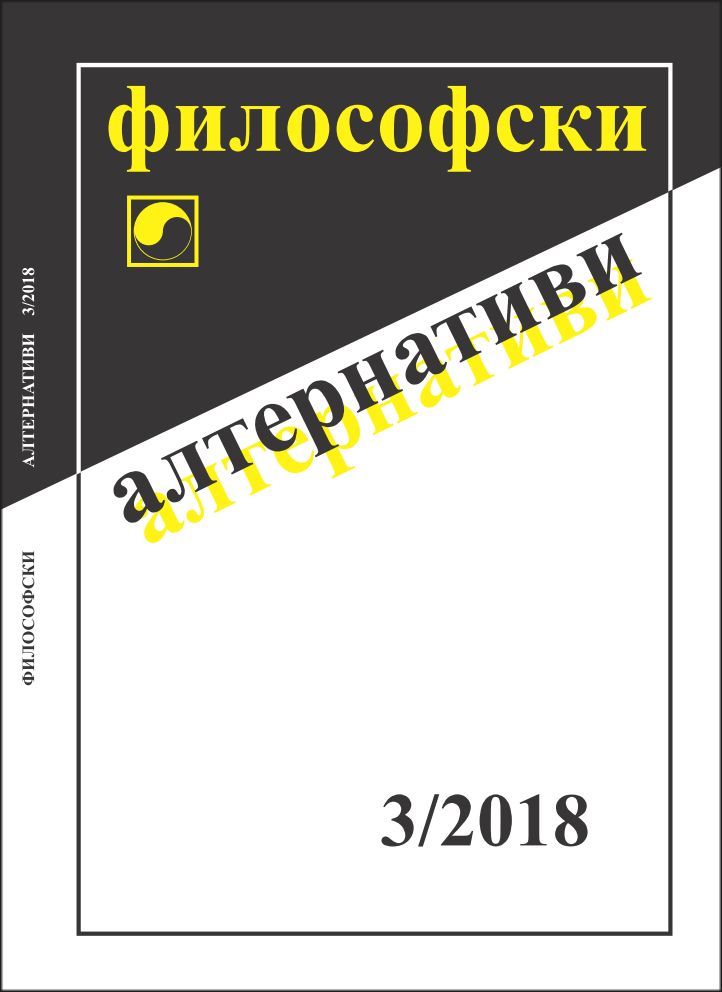
We kindly inform you that, as long as the subject affiliation of our 300.000+ articles is in progress, you might get unsufficient or no results on your third level or second level search. In this case, please broaden your search criteria.



Political correctness is blamed by its opponents for the failed model of multiculturalism, the influx of migrants, and the threat of terrorist acts. The author refers to the contemporary achievements in semiotics, hermeneutics and philosophical anthropology. His criticism is directed at: 1) the paradoxes of postmodern philosophical attempts to justify the idea of political correctness; 2) the way new terminology is introduced, leading at a linguistic level to exclusion, not inclusion, of disadvantaged people: E. Benveniste asserts that the third person is rather a non-person. The article concludes that politically correct language should be grounded on a basis that takes into account the three persons of the conjugation of verbs. Similar philosophical and ethical ideas can be found in the works of J. Kristeva, T. Todorov, P. Ricoeur. This is one of the possible ways to overcome the exclusion of disadvantaged people who are named using terms, but are not in a way that designates them as participants in social and political dialogue.
More...
The article considers the development of chronopolitics, a new current in political science, which studies political time and its structurally-spatial features. Its conceptual foundations date back to the 1970s, to the world-system theory of I. Wallerstein and G. Modelski’s “long cycle” theory, which, for their part, serve as a conceptual basis of contemporary geopolitical research. The author views the two connected sciences (chronopolitics and geopolitics) as mutually complementary in a theoretical and applied aspect.
More...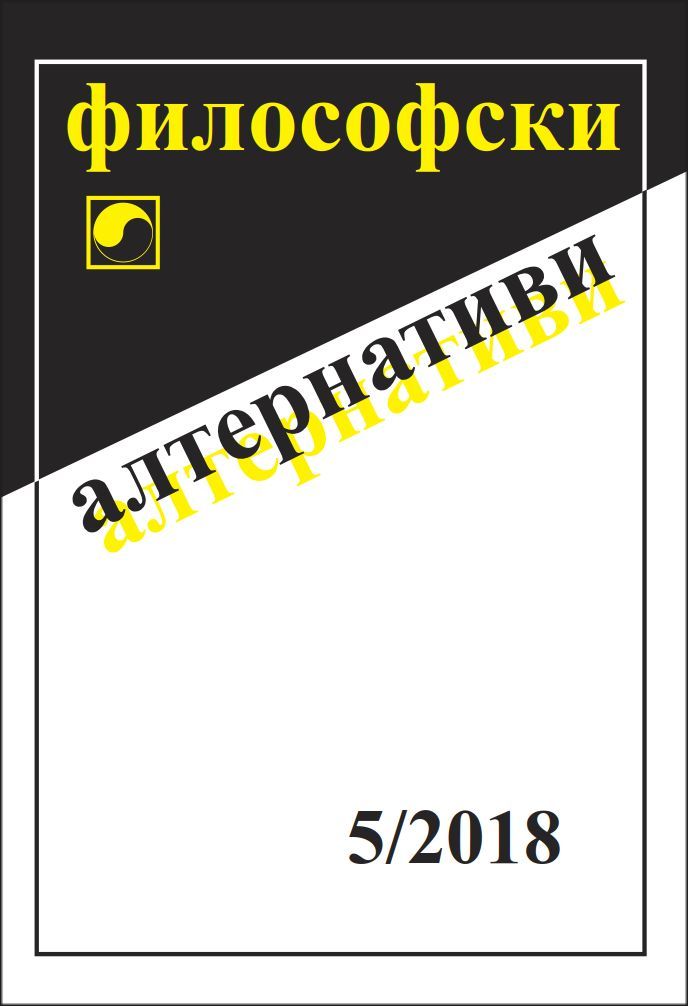
The article is focused on Dimitar Mihalchev’s analysis of the solution to the mind-body relationship proposed by Gottfried Wilhelm Leibniz. After analyzing the fundamental ontological and epistemological ideas of Leibniz’s philosophy, the Bulgarian thinker indicates the reasons for his conclusions and assessments in the perspective of his own theory. The fact that a philosopher like Mihalchev was interested in Leibniz’s scientific views indicates the importance of the latter’s theory.
More...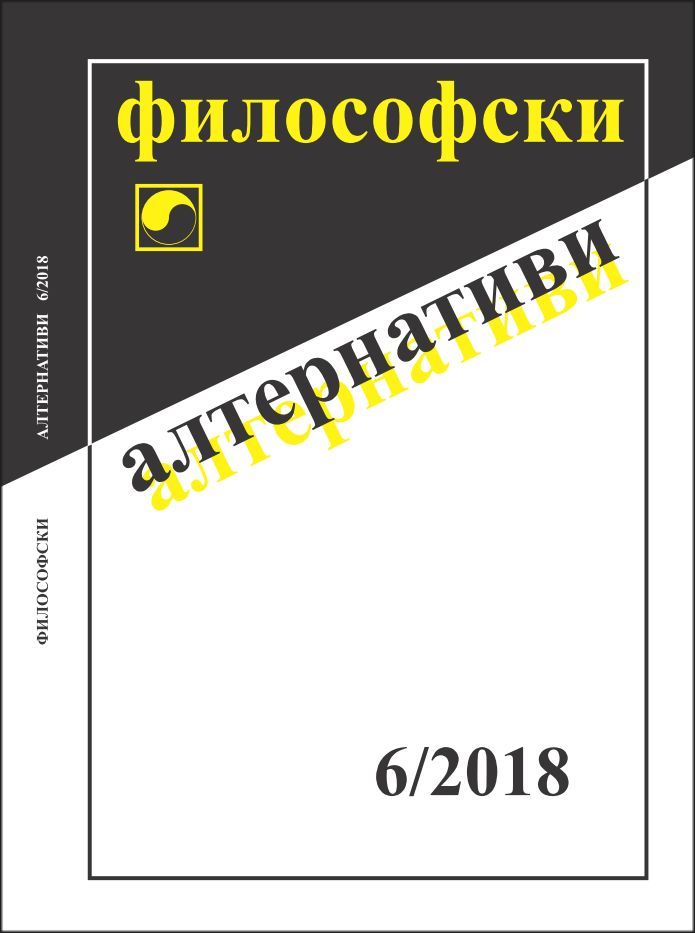
The paper reveals the changes which took place in Frege’s way of thinking in the years 1891-1895 with regard to some fundamental notions defended in his Begriffsschrift, 1879. The “judgeable content” was rethought in terms of its Sinn (meaning) and Bedeutung (sense or denotation). This change of mind helped Frege explain the epistemological and informative aspects of identity statements and prepared the ground for precise formulation of some of his important conclusions presented in the first volume of his Grundgesetze der Arithmetik, 1893. The paper traces the application of the notions of Sinn and Bedeutung to proper names of objects, concept words and sentences. The author emphasizes Frege’s arguments as to why the Bedeutung of the sentence should be its truth-value.
More...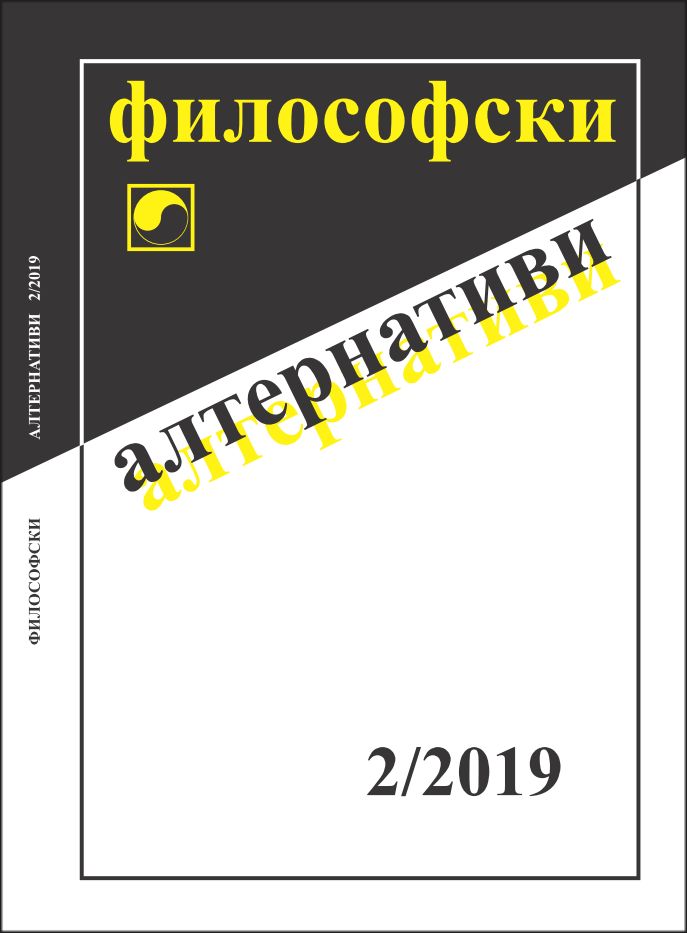
The concept of eliminativism is defended in the framework of eliminative physicalism. First, I reconstruct existing theories on the nature and structure of concepts and conclude that none of these has the capacity to give a full and precise description of concepts. Then I adduce arguments in support of the statement that “concept” is a term of folk psychology, a proto-scientific theory which is strongly criticized by eliminative physicalism. I attempt to argue for the latter view over rival views by addressing some frequent criticisms of this stance. The arguments in favor of concept eliminativism are (1) its failure to formulate a theory of the nature and structure of concepts and (2) the conclusion that concepts are part of folk psychology, which provides considerably less effective explanations than neuroscience. On the basis of (1) and (2), it is concluded that the term “concept” should be eliminated from the language of science.
More...
In the Sun-Earth system, the second thermodynamic principle is manifested in a specific way. The sun exerts a potent protective effect on the most energy-intensive chemical reaction: the synthesis of proteins through nucleic acids. A buildable-degradable matter is accumulated. This process passes through several phases: growth of the individual, maturation, reproduction, saturation of the ecological niche of the population, formation of the species, increasing complexity of the environment, a progressive course of evolution, a transition from living beings’ adaptation to their environment to the environment’s adaptation to living beings. This happens as follows: a “conditioned stimulus”, designated here as “love of the future” is presented. The latter creates an un-conditioned stimulus. The consumption of the latter is designated as “love of the present”, which comprises satisfaction of instincts and the use of “free play”. “Free play” is fragmented by the rationality of the actions; and it has different forms of manifestation. Schizophrenia is a failure to build the neural connection between love of the future and love of the present. The author supports Bleuler’s view that the essential feature of schizophrenia is deficits in the higher functions. The article also discusses certain features of other psychoses, affective disorders, personality disorders, the role of transmitters, etc. A life strategy for better health is presented.
More...
The main objective of the article is to make a comprehensive study of the life and activity of Dr. Vasil Hadjistoyanov-Beron and highlight his contributions to the intellectual development of Bulgaria and the integration of Bulgaria into European science and culture, particularly to the development of Bulgarian science, education, enlightenment and culture. Vasil Hadjistoyanov-Beron was an encyclopedist; he was the compiler of the first Bulgarian textbook on natural history, the first textbook on logic, the first German and French grammar books (in Bulgarian), and the first scholar to make archaeological excavations in Bulgaria. Headmaster of the Bolgrad High School and a member of the Constituent National Assembly that adopted the Tarnovo Constitution (1879), he contributed to the institutional building of the Bulgarian state. The article deals consecutively with his youth years – when some of his views were formed, with the years of his medical practice in Romania, and with his activities in Turnovo and Bolgrad. Particular attention is devoted to his merits for the establishment of the Bulgarian national identity, the awakening of Bulgarian national consciousness, his struggle for an independent Bulgarian church and Bulgarian education. In a separate section, we analyze his book on logic. The text is mainly based on recollections of his youngest daughter, which she shared with her grandson (the author of this article).
More...
The article deals with the attitude of Prof. Bogomil Beron (Department of Dermatology) to prostitution in Bulgaria after the Liberation (1878). Contemporaneous evidence has been adduced, showing his ultimately abolitionist view on the problem, in line with the major European trends of his time.
More...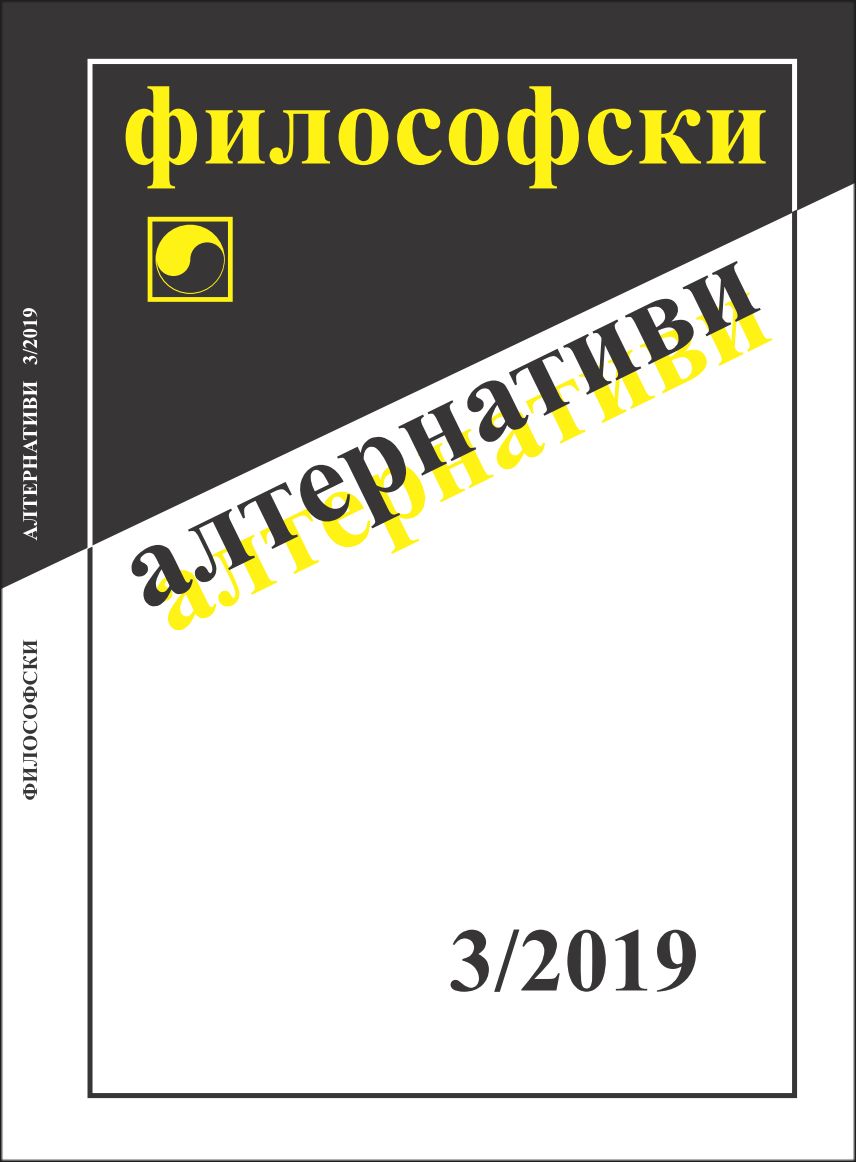
The article presents a many-sided analysis of the famous phrase in Dostoyevsky’s The Idiot, “Beauty will save the world”. Presented here in the context of the Schillerian influences during Dostoyevsky’s youth, its originality is demonstrated. The article carefully examines the appearance of the phrase in the text of the novel, its relation to Prince Myshkin, and its later destiny, whereby it has become a stable formula with different emphases from those in the novel. In the context of the main theme of The Idiot, beauty is conceived ontologically, personalistically, and mystically: it is embodied in the God-man Christ, and as such is a transformative holy force. For Dostoyevsky, beauty saves because it is another word for God. Outside Christ, beauty can be only human, and hence is inevitably situation along the axis of good and evil.
More...
The author explores Ortega-y-Gasset’s contradictory attitude to modern art. As a possible reason for this ambivalence, we propose the assumption that, lying at the foundation of modern art is the same impulse that leads to the emergence and domination of “mass-man”. We consider Ortega’s interest in aesthetic issues as a way of exploring the unique transformation of the self-assertive hermetic vitality that Modernity experiences. The text focuses not on the purely aesthetic features of modern art, but on its ability to move beyond the boundaries of aesthetics in general, and the consequences of this movement. We claim that dehumanization is a historically determined means of derealization and that the path modern art chooses to return to its ontological essence is indicative of the spirit of the age in general.
More...
The short essay “Dream Kitsch” (“Traumkitsch”) is a controversial comment by Walter Benjamin on surrealism, which the author sees as the “last snapshot of the European intelligentsia”, as a crisis of art that aims to mobilize dreaming and thereby risks missing the essence of things and turning them into kitsch.
More...
The article considers how prototype is established through a dialectical construction of artistic form. The conception of prototype is presented through a long dialectical examination of the relation between subjective sense and its material counterpart as a topos of symbolic being. The prototype is a regulative ideal pattern of maximum expression in artistic form. The image and its prototype establish each other simultaneously. In artistic experience, we encounter a phenomenon of correspondence. Losev presented a detailed structure of likeness in image, and showed how it involves the disclosure of the prototype.
More...
The article reviews the myth of Odysseus in literature: Homer’s Odyssey, Joyce’s Ulysses, and Eric-Emmanuel Schmitt’s Ulysses from Baghdad. From Mircea Eliade’s cultural interpretation of the myth of Odysseus, the article goes on to K. Jung’s interpretation of Odysseus as a trickster. From the general cultural and psychoanalytic profile of Odysseus as man returning “home”, to “his roots”, to the authentic self, complemented by the option of travel as a transformation, in which one becomes oneself as other, the article goes on to considering the “return to oneself” as an augmented and expanded other, although still oneself, and to the metaphorical perspective on the myth. And hence, “return to oneself” is viewed as repetition enhanced by the inclusion of difference: in this way, the idea is unconsciously advanced that the myth of Odysseus, as a metaphor of “the return to oneself as other” is analogous, on a highly theoretical level, with “the myth of eternal return”. The myth of eternal return is presented through the optics of: Nietzsche; Heidegger’s interpretation of Nietzsche’ “eternal return”; Deleuze’s interpretation of the latter, which demonstrates as justified the hypothesis that the myth of Odysseus is a form of the myth of eternal return, whereby the hypothesis becomes a thesis.
More...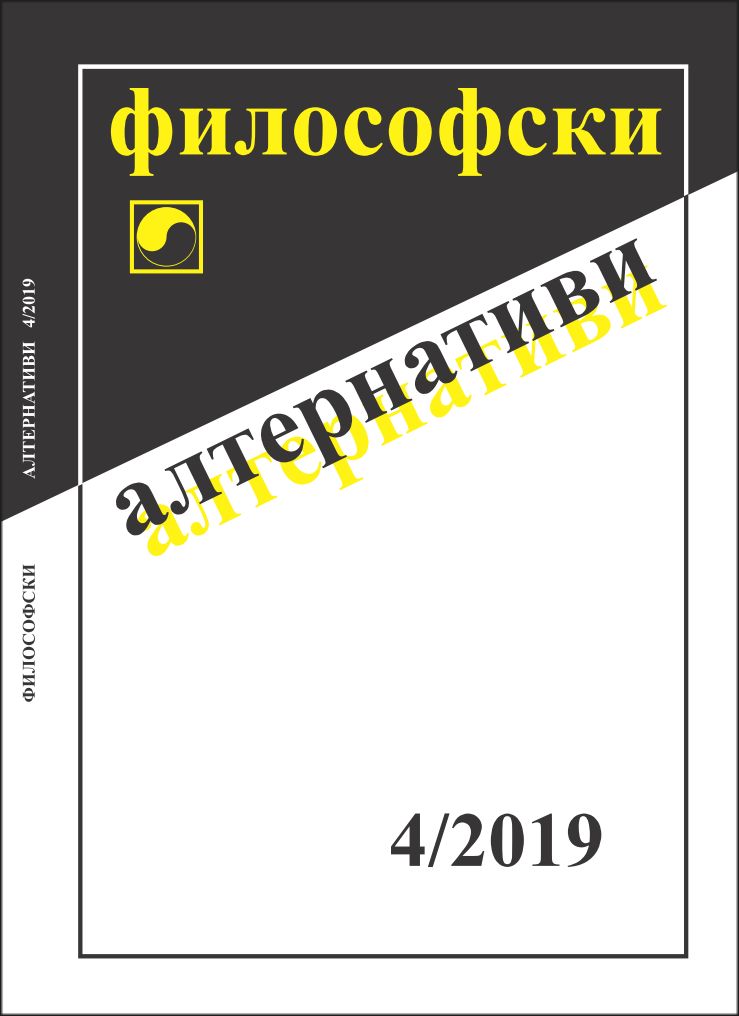

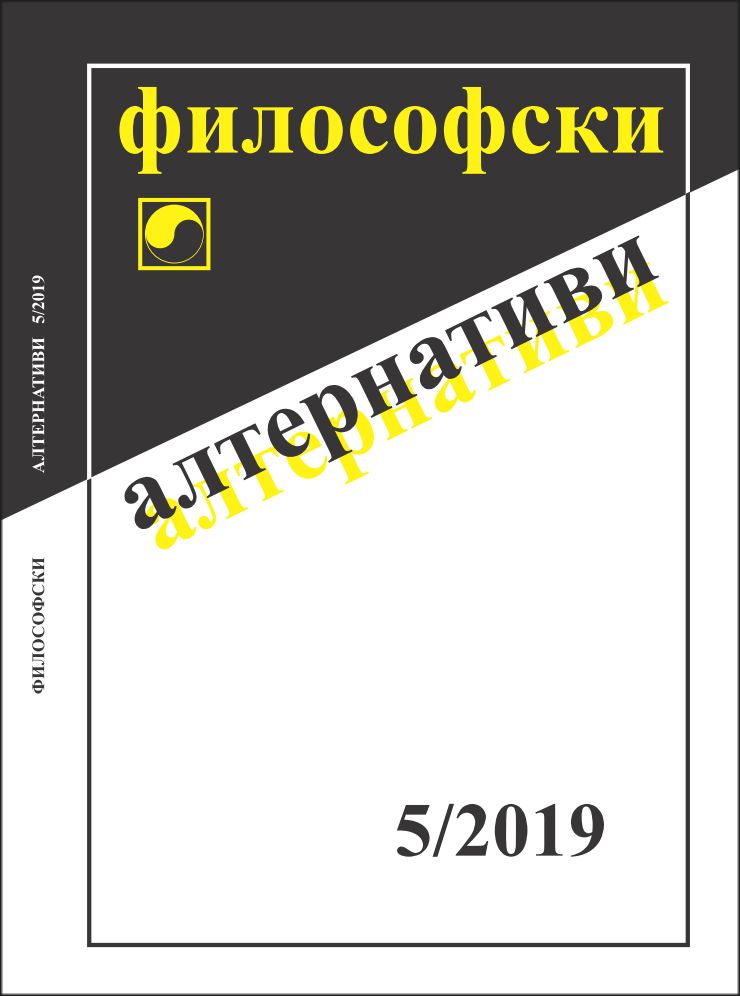
The article proceeds from the general assumption that in an anomic society, such as the Bulgarian society in course of transformation, eight basic patterns of economic behavior can be identified, only one of which can be classified as normal, while the other seven models are burdened with different components of deviance. The deviance of individuals is specific, depending both on their attitude towards the goals set by culture in society and on the preferred means of achieving these goals (legitimate or illegitimate). While normal behavior is marked by the category of social conformism, we refer to deviant behavioral patterns of innovators, ritualists, retreaters, rebels, maximizers, neutralizers and alternators. The author employs abundant empirical material regarding the presence of these eight behavioral models in contemporary Bulgarian society.
More...
The article deals with the acute issue of the availability of adequate occupational safety and health systems in the Bulgarian economy. Although the creation of such systems is impeccably postulated in legislation, its practical application leaves much to be desired. Through assessments by employers and employees in the Bulgarian economy, the article reveals the more important trends in the creation of safety and health systems at work. Based on analyses of empirical assessments, conclusions are drawn regarding the changes required to improve the safety and health policies at enterprise level. The article raises key issues in the field of safety and health at work, indicating the necessary directions for future policies.
More...
In this paper, I turn my attention to two main topics: first, the French Revolution of 1789, which began 230 years, and second, a brief history of the pamphlet. A study of the relationship between these topics sheds light on the intellectual history of modern political thought. On the one hand, we thus discover some leading directions in the development of the media of the written word, which may give rise to divergent and contradictory ideas in the impartial observer. On the other, we stand before the imposing view of the modern political revolution as an epoch-making event involving complete denial of the past system of religious, moral, and juridical values in the name of the people’s all-embracing liberty, defined as the most important value by the radical Enlightenment philosophers in the second half of the eighteenth century.
More...